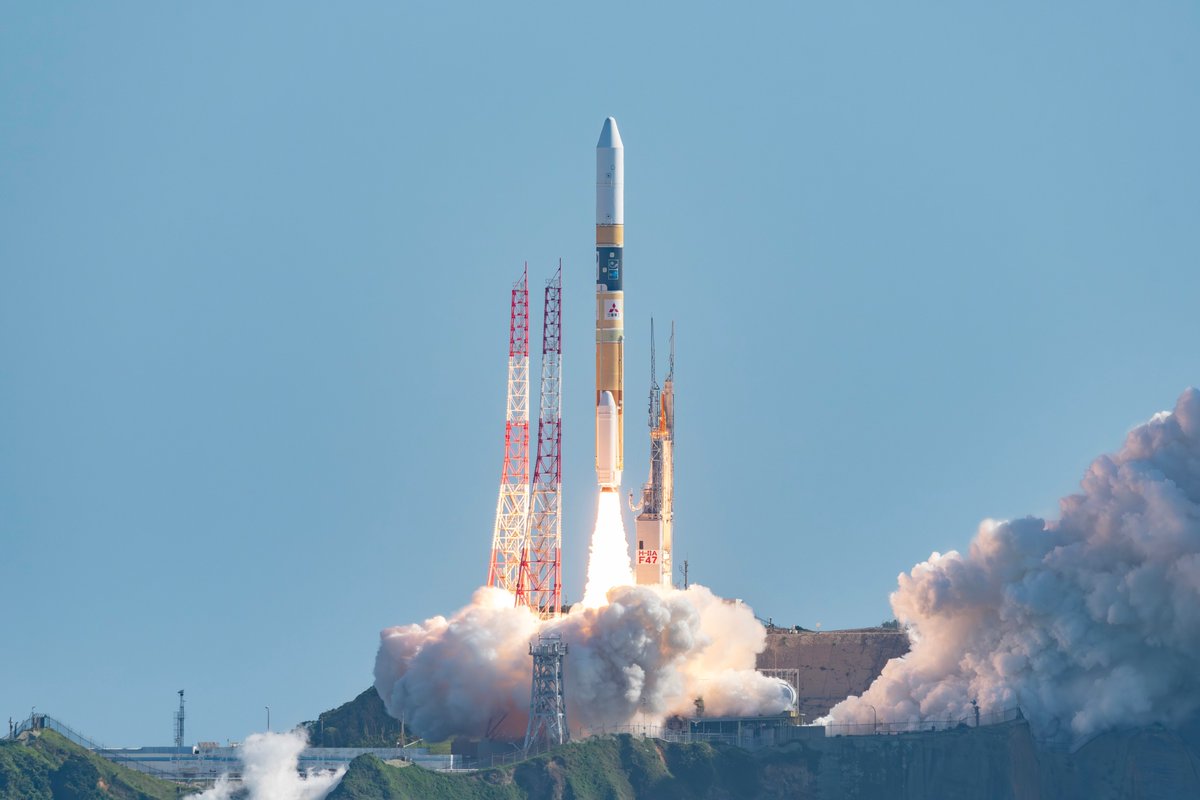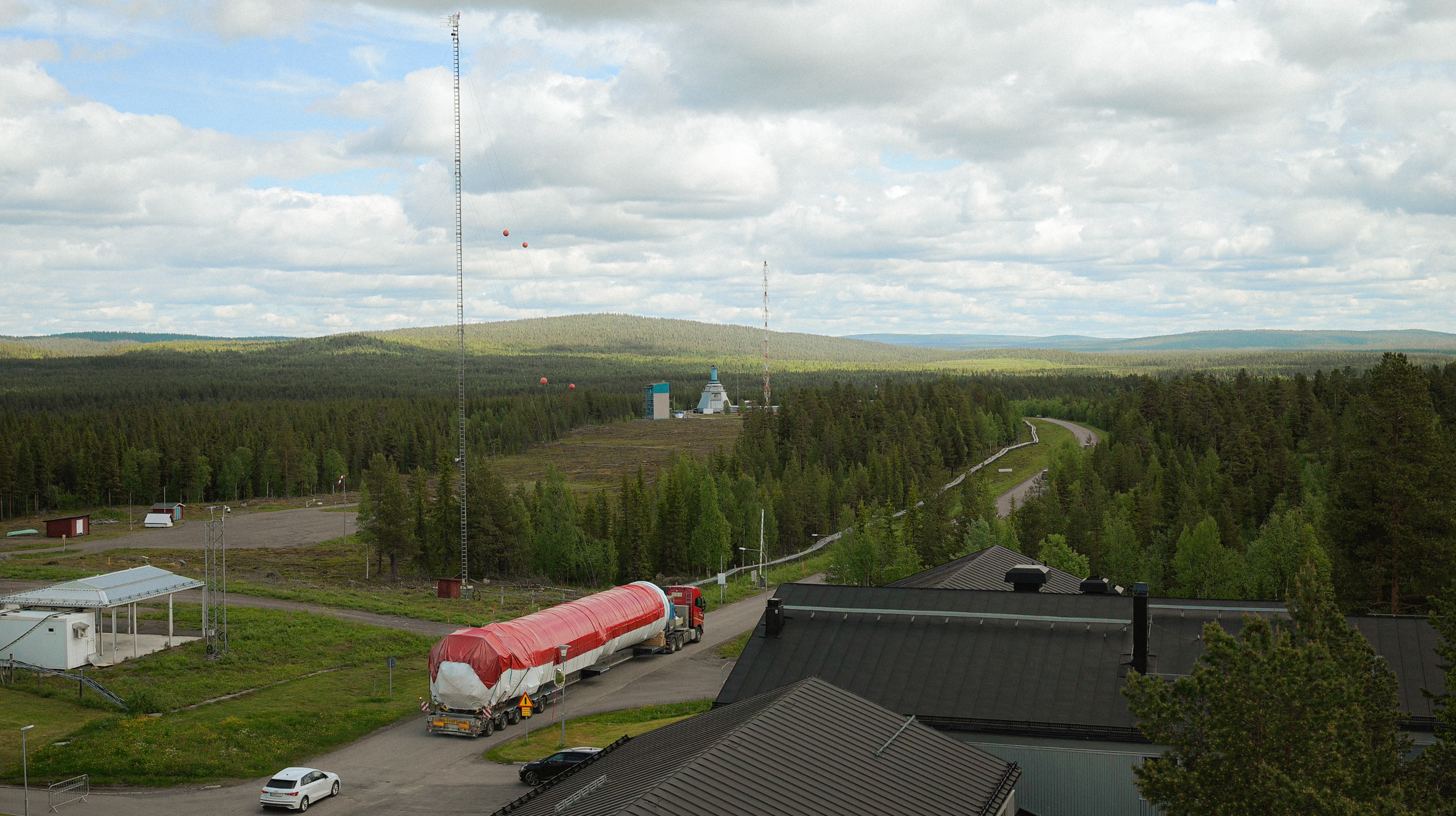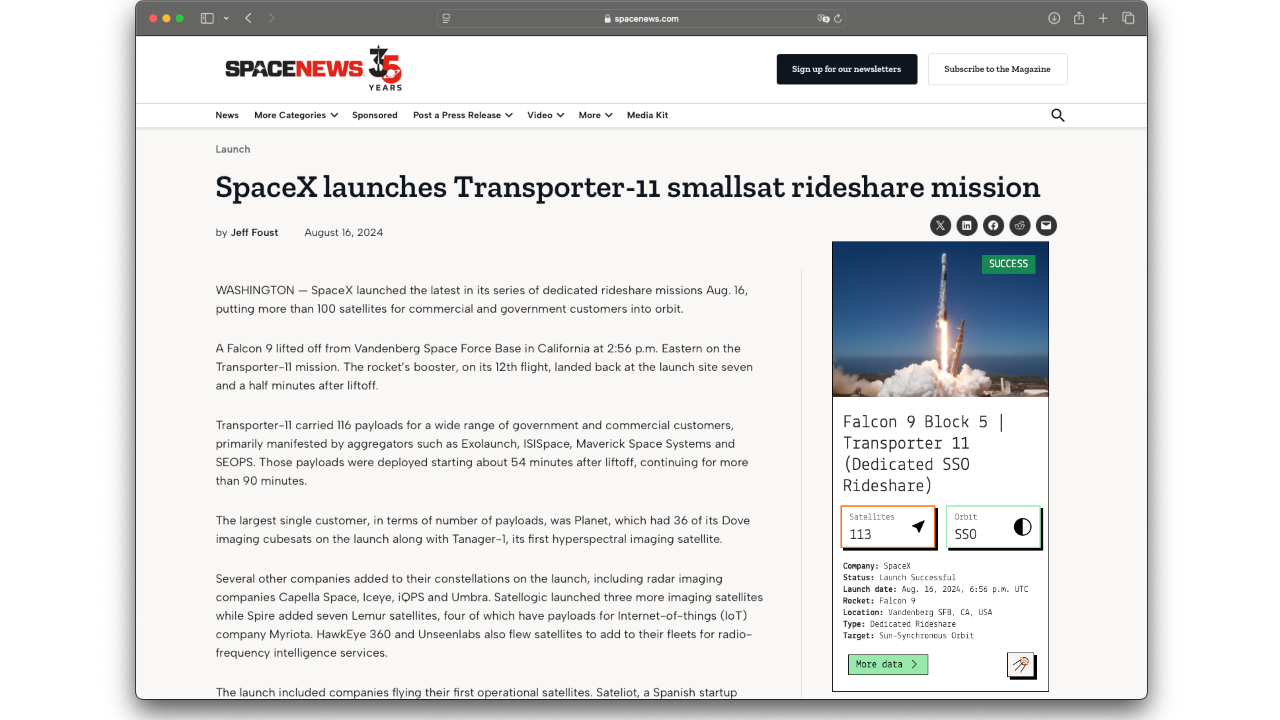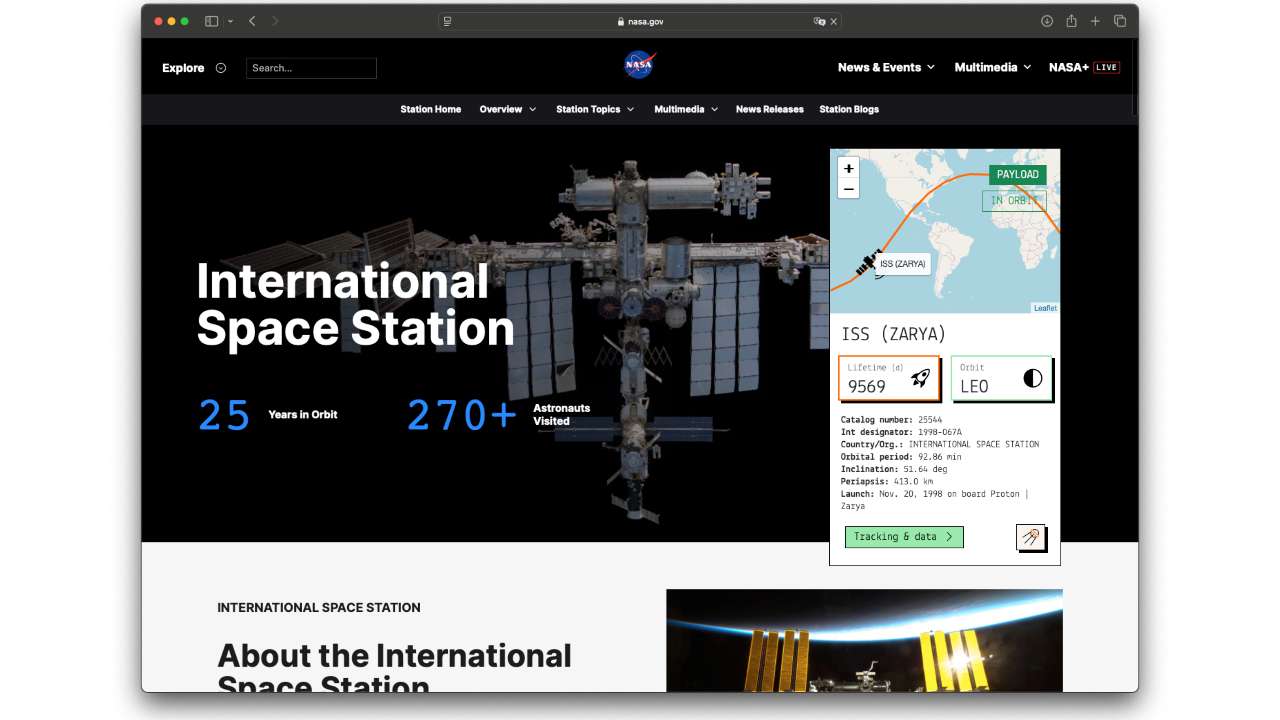Key statistics
Satellite GOSAT-GW at a glance.
Uptime
25
Days in orbit
Revolutions
≈ 14.7
Per day
Orbit
SSO
Sun Synchronous Orbit
Inclination
98.0
Latest
Satellite identification and parameters
Extended collection of information and parameters for GOSAT-GW.
Object identification
Identified? True
Debris? False
Object name: GOSAT-GW
International designator: 2025-141A
Object number (NORAD): 64694
Object ID (CCSDS): 64694
Country: JAPAN (JPN)
Current information (Y/N): Y
RCS size: LARGE
Orbital parameters
Period: 98.121 minutes
Inclination: 98.0258 deg
SMA: 7046.966 km
Apoapsis: 669.893 km
Periapsis: 667.769 km
RAAN: 141.8726 deg
Eccentricy: 0.0001507
Argument of periapsis: 84.0623 deg
Mean anomaly: 276.0753 deg
Mean motion: 14.67572159 rev/day
Mean motion (dot): 0.00000732 rev/day2
B* drag term: 0.00013733 1/REarth
Two-line elements (TLE)
Creation date: July 22, 2025, 5:58 p.m.
Reference frame: TEME
Reference center: EARTH
Epoch: July 22, 2025, 2:27 p.m. UTC
TLE line 0: 0 GOSAT-GW
TLE line 1: 1 64694U 25141A 25203.60263692 .00000732 00000-0 13733-3 0 9990
TLE line 2: 2 64694 98.0258 141.8726 0001507 84.0623 276.0753 14.67572159 3503
Live tracking on map
Real-time ground track for satellite GOSAT-GW.
In-orbit conjunctions
There are no conjunctions computed for GOSAT-GW, at the moment. Check back to stay up to date, as we update our databases every day.
Go to all conjunctionsAssociated space launch
GOSAT-GW (Greenhouse Gases Observing Satellite Greenhouse gases and Water cycle), also known as Ibuki GW and formerly known as GOSAT 3, is JAXA's next generation satellite to monitor the greenhosue gases like carbon dioxide in the Earth's atmosphere. It is the follow on to the GOSAT 2 (Ibuki 2) and GCOM-W (Shizuku) missions. GOSAT-GW will have two missions: greenhouse gases observation for Japan's Ministry of the Environment and the National Institute for Environmental Studies (NIES), and water-cycle observation for JAXA. By developing the GOSAT-GW satellite, Mitsubishi Electric will contribute to measures for preventing disasters attributed to global warming and climate change, and to advance scientific and technological methods that enable more accurate prediction of climate change. In December 2013, Mitsubishi Electric (MELCO) was selected as the prime contractor for the spacecraft and the instruments.
GOSAT-GW was lifted into orbit during the mission ‘H-IIA 202 | GOSAT-GW (Ibuki GW)’, on board a H-IIA space rocket.
The launch took place on June 28, 2025, 4:33 p.m. from Yoshinobu Launch Complex LP-1.
For more information about the launch, click the button.

H-IIA 202 | GOSAT-GW (Ibuki GW)
Agency: Japan Aerospace Exploration Agency
Status: Launch Successful
Launch date: June 28, 2025, 4:33 p.m. UTC
Rocket: H-IIA
Launch pad: Yoshinobu Launch Complex LP-1
Location: Tanegashima Space Center, Japan
...
Latest news about this satellite

Rocket Report: Japan’s workhorse booster takes a bow; you can invest in SpaceX now
"We will be able to industrialize Zephyr production up to 50 units per year."

Final H-2A launches Earth science satellite
An H-2A rocket successfully launched an Earth science satellite June 28 on the final flight of a vehicle that had long been the workhorse for Japanese space access. The post Final H-2A launches Earth science satellite appeared first on SpaceNews.

Japan’s GOSAT-GW to launch aboard final H-IIA rocket
The final flight of Japan’s H-IIA rocket will carry the GOSAT-GW environmental research satellite to… The post Japan’s GOSAT-GW to launch aboard final H-IIA rocket appeared first on NASASpaceFlight.com.
Newsletter sign-up
Weekly statistics, charts and insights to help you stay on top of the space industry.




